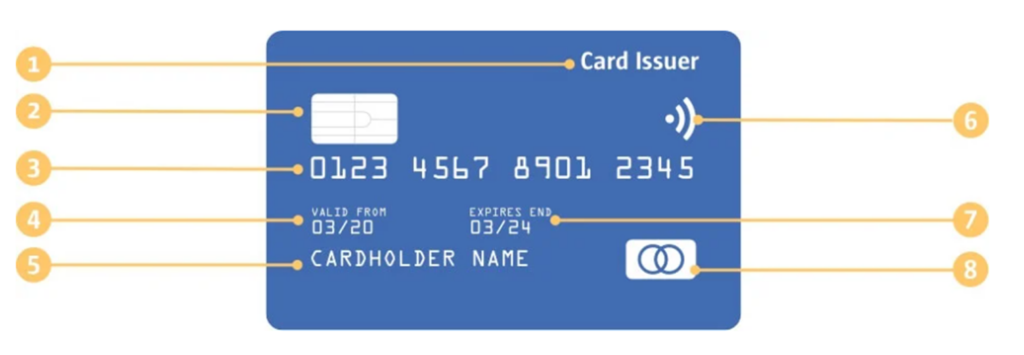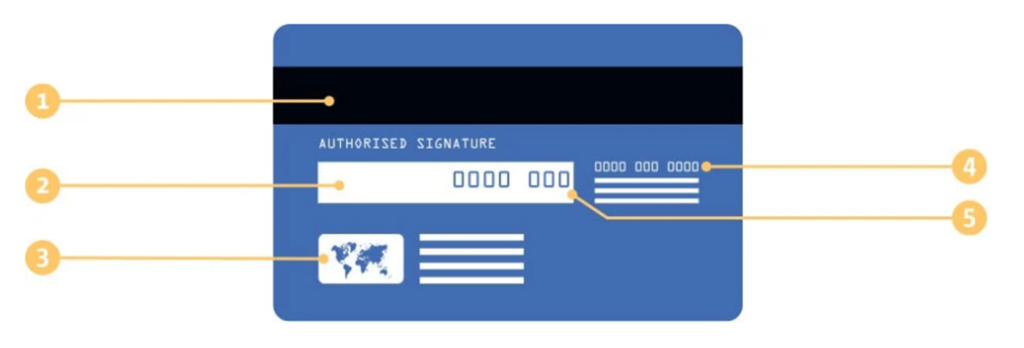Card Holder Data
Account data includes the Primary Account Number (PAN), PIN, card verification value (CVV), CVV2, expiry date and card holder name.
Under the PCI DSS, this information can be stored as part of a payment transaction but must be securely protected.

- Card Issuer – The name of the bank, building society or other financial organisation that issued the card, for example, Barclays or American Express.
- EMV Chip – EMV stands for Europay, Mastercard and Visa. This computer chip creates a unique transaction code for each purchase you make.
- Long Number – This is the permanent account number, or PAN. The number identifies the institution that issued the card and the card holder.
- Valid from date – This appears as ‘start’ on some cards. Not all cards have it.
- Name – Name of the account holder
- Contactless Symbol – If your credit or debit card is set up for contactless payment, it will have this symbol. You can use contactless cards for transactions up to £100 without having to punch in your PIN.
- Expiry date – This appears as ‘end’ on some cards. Your card will expire on the last day of the month shown.
- Card network logo – Card network (also known as schemes) control transactions between credit card issuers and merchants. UK card schemes include Visa, Mastercard, American Express and Maestro. If a merchant displays this logo, you’ll be able to use your card there.

- Magnetic Strip – Information about you and your card is encoded into this strip. if you make purchases or withdraw money using a card reader, the strip providers your details for verification.
- Signature Strip – You need to sign your card for it to be valid.
- Hologram – Holograms are difficult to forge, some credit and debit cards have them as an additional security measure.
- Emergency number – this is the number to call if your card is ever lost or stolen.
- CCV Number – This is the last three numbers on the back of your card. you’ll be asked for this when you make a transaction remotely. These are known as ‘card not present’ transactions. CCV stands for credit card verification code.
